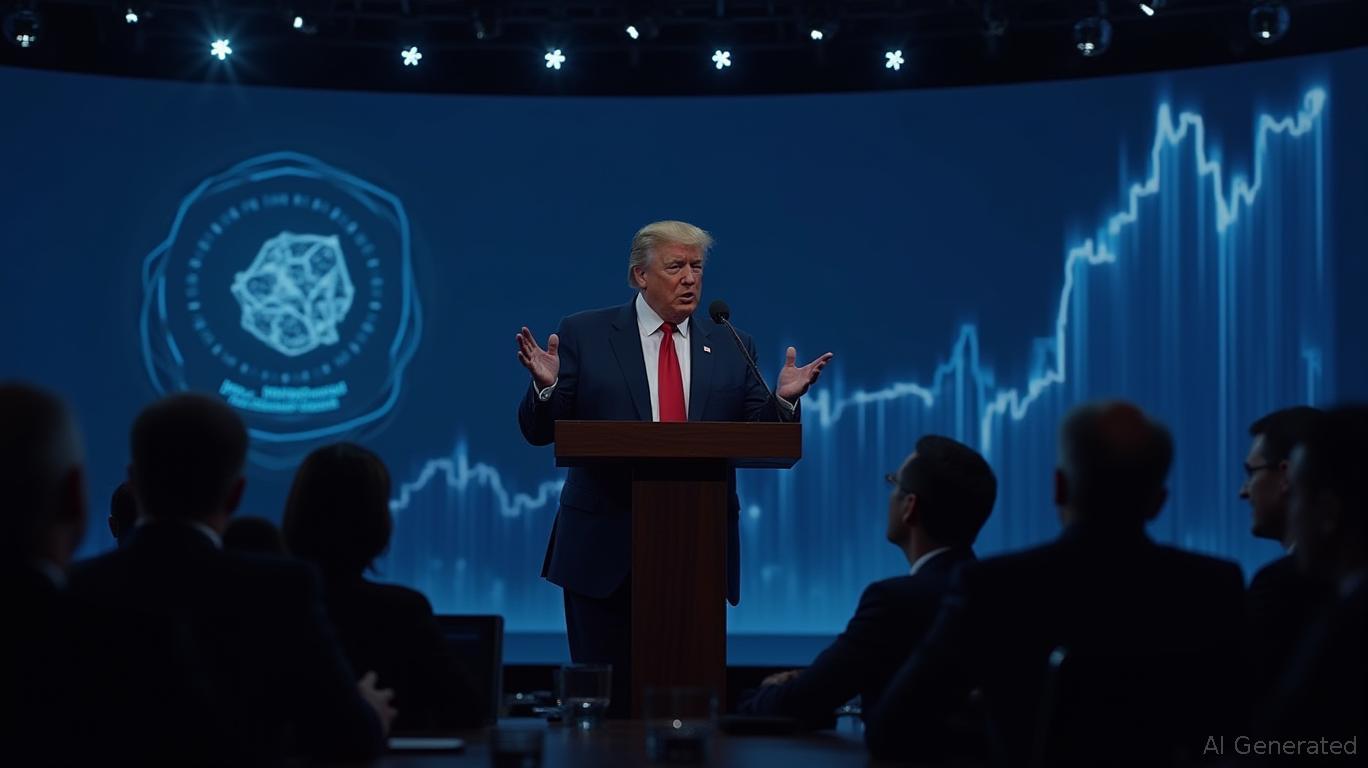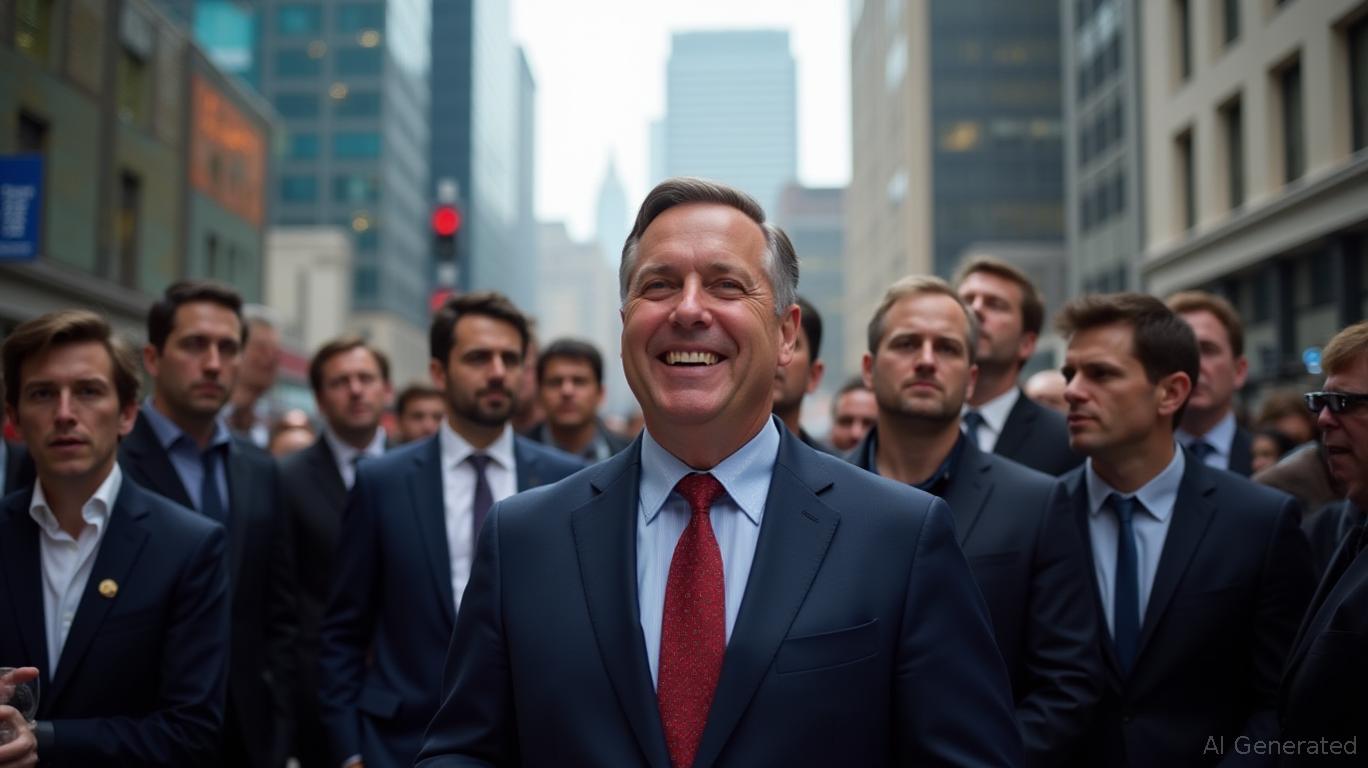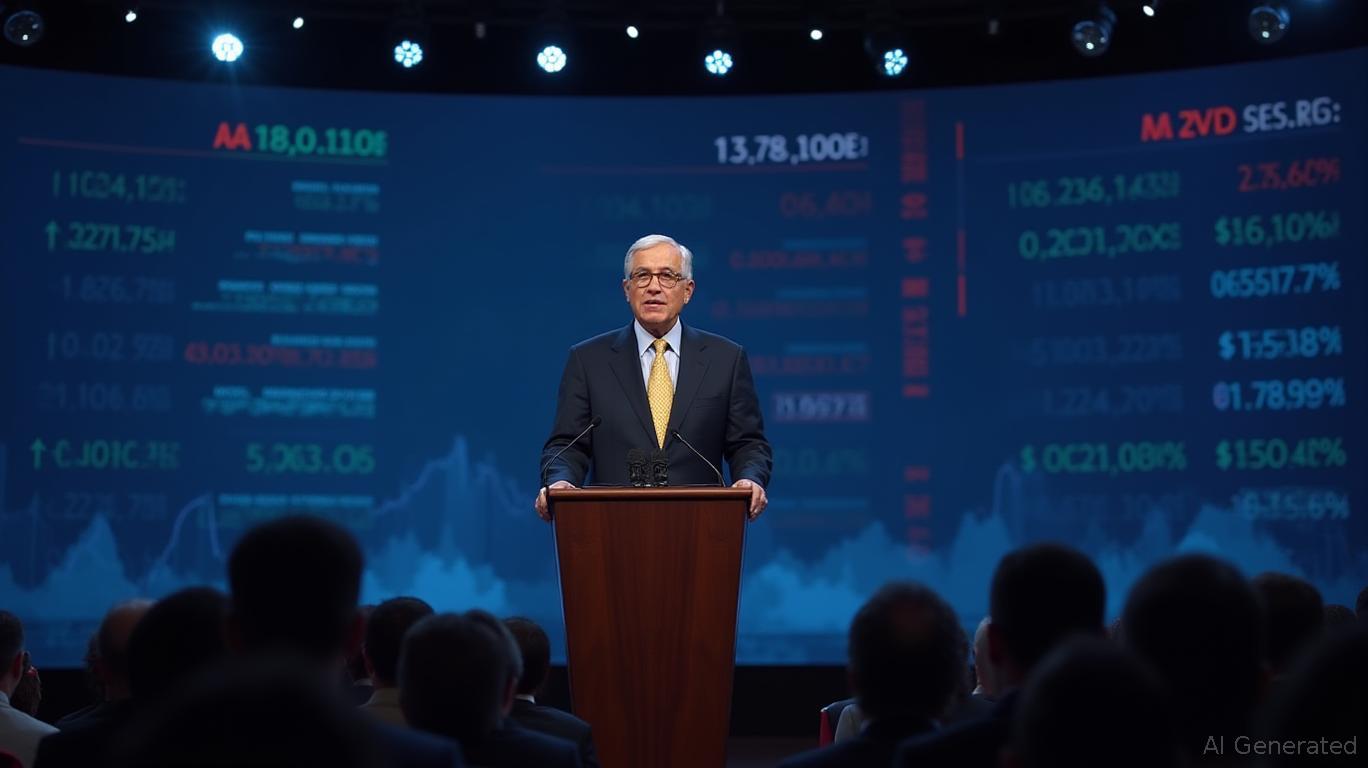Trump’s Innovation Strategy Fueled by Unified Crypto Oversight and Advancements in AI
- Trump nominated SEC crypto task force chief Michael Selig to lead CFTC, aiming to unify cryptocurrency regulation and clarify agency authority over digital assets. - Port3 Network expanded Web3 AI infrastructure through five strategic partnerships, enhancing agent development and security while participating in industry growth discussions. - Defense AI firm BigBear.ai saw 300% stock growth from military contracts and airport tech, despite $228.6M losses, with $390M cash reserves supporting future expansi
Donald Trump has put forward Michael Selig, who currently serves as the lead counsel for the SEC's crypto task force, as his pick to head the Commodity Futures Trading Commission (CFTC). This nomination marks a deliberate move toward more cohesive cryptocurrency oversight, drawing on Selig’s background in fostering cooperation between the SEC and CFTC. The decision aligns with bipartisan initiatives aimed at clarifying the CFTC’s jurisdiction in the crypto sector, as legislators seek to define the agency’s responsibilities in the rapidly changing digital asset arena, according to a
At the same time, Port3 Network has reinforced its status as a key infrastructure provider for the Web3 AI agent landscape. In October, the network secured five major partnerships, broadening the reach of its AI data signals across agent creation, deployment, and security. These collaborations, highlighted in a

The AI agent sector is gaining further traction through its applications in defense and enterprise. BigBear.ai, a significant player in defense AI, has experienced a 300% increase in its stock price this year, fueled by contracts with the U.S. military and airports. The company’s ConductorOS AI platform, paired with Tsecond’s durable hardware, supports edge computing for tactical teams, while its veriScan technology has reduced international airport processing times to just 10 seconds, as noted in a
When comparing BigBear.ai and C3.ai, their approaches in the AI industry diverge. Both companies saw revenue drops in 2025, but BigBear has concentrated on defense contracts, while C3.ai has targeted a wider enterprise market. C3.ai has also faced legal issues, including a 25.58% drop in its stock following concerns over the CEO’s health and lowered forecasts, as reported in a
The CFTC is expected to play a more prominent role in crypto regulation by 2026, as major banks and exchanges ramp up tokenization initiatives. Selig’s appointment would represent a crucial step, aiming to strike a balance between fostering innovation and maintaining oversight—a challenge that has tested previous regulators. Likewise, the future of the AI sector will depend on execution: firms like BigBear.ai need to turn their contract pipelines into consistent revenue, while Port3’s alliances will be instrumental in shaping decentralized automation’s next phase.
Disclaimer: The content of this article solely reflects the author's opinion and does not represent the platform in any capacity. This article is not intended to serve as a reference for making investment decisions.
You may also like
XRP News Update: Pi Network Faces ISO 20022 Hurdle—Building Trust to Rival Ripple and Stellar
- Pi Network, with 50M users, joins Ripple/Stellar in ISO 20022 compliance efforts to bridge blockchain and traditional banking by 2025. - Finalizing sandbox testing for SWIFT compatibility, Pi aims to enable institutional interoperability through decentralized compliance APIs and real-time transaction verification. - Targeting emerging markets via Nigeria/Vietnam pilots and regulatory discussions in Kenya/Indonesia, Pi seeks to leverage its user base for retail/small business adoption. - Unlike Ripple/Ste

Bitcoin News Update: Optimistic Fed Stance Lifts Markets, While Analysts Remain Wary Over Trump Policy Proposals
- Fed rate cuts spark optimism in crypto and equities, with S&P 500 projected to rise 4%-10% by 2025 amid investor skepticism. - J.P. Morgan warns Fed may pause 2025 cuts to assess Trump-era policy impacts, diverging from Wall Street's easing expectations. - Bitcoin rebounds to $114,600 as ETF inflows drive institutional ownership to 12% of total supply, fueled by geopolitical stability and macro trends. - Binance's CZ backs crypto's macro role post-Trump pardon, while analysts caution Trump tariffs could

China Intensifies Crypto Restrictions to Boost Digital Yuan and Challenge Dollar Supremacy
- Beijing Procuratorate revealed a 1.1B yuan virtual currency case, highlighting China's intensified crackdown on offshore forex transactions via digital assets. - Regulatory focus shifts to curbing black-market crypto activities while advancing digital RMB (e-CNY) for cross-border trade to challenge U.S. dollar dominance. - Bank of China prioritizes e-CNY offshore applications in Hong Kong and Southeast Asia, aiming to create an independent yuan-based payment system. - Geopolitical tensions in U.S.-China

Bitcoin News Update: Interest Rate Reduction Seeks to Address Labor Market Slowdown Amid Easing Inflation
- The Fed is set to cut rates by 25 bps at its October 2025 meeting (98.3% probability), shifting focus from inflation to labor market stabilization amid softening employment data. - Private-sector indicators and truncated CPI data enabled the FOMC to act despite a government shutdown, with analysts citing "safer" conditions for easing due to weak labor markets and subdued inflation. - Bitcoin surged to $116,000 as crypto markets priced in the cut, while geopolitical risks eased with potential U.S.-China t
